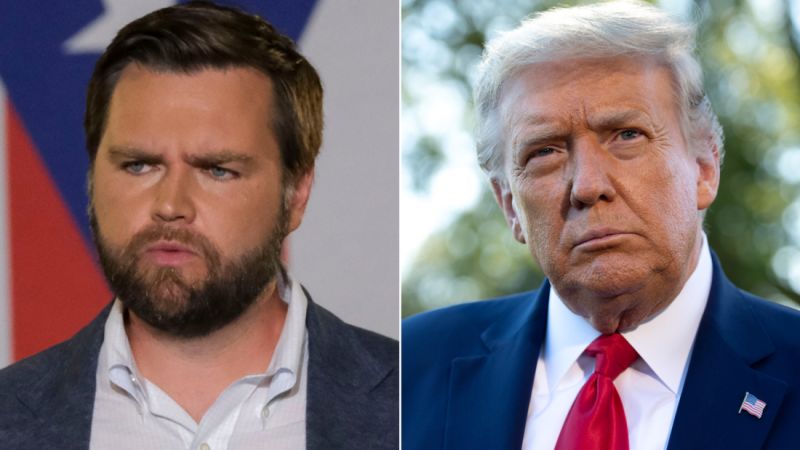Vance defends Trump’s tweet by stating that it was not anti-Semitic and that it simply expressed disappointment in Jewish voters who supported Biden. He argues that it is fair to criticize individuals for their political decisions and that Trump’s tweet was not meant to target Jews as a whole. Vance emphasizes that his support for Trump does not mean he agrees with every statement or action the former president makes, but rather that he aligns with Trump on certain policy issues.
Bash challenges Vance on the potential harm of Trump’s tweet, pointing out that it perpetuates divisive rhetoric and could fuel anti-Semitism. She questions whether Vance believes it is appropriate for a president or former president to shame a specific group of people for their political choices. Vance responds by stating that he is not responsible for Trump’s tweets and cannot control what the former president posts on social media. He maintains that Trump was simply expressing his personal opinion and that individuals have the right to disagree with him.
Vance acknowledges that there is a rise in anti-Semitism and divisive rhetoric in the United States, but he believes that Trump’s tweet should not be equated with those more extreme forms of hate speech. He argues that criticizing specific groups for their political choices is a normal part of political discourse and that individuals should be able to express their opinions without being accused of promoting hatred. Vance also points out that he has Jewish family members and does not tolerate anti-Semitic behavior.
Bash presses Vance further on the impact of Trump’s tweet on the Jewish community, questioning whether he understands the sensitivity surrounding comments that shame specific groups based on their identity. Vance maintains that Trump’s tweet was not intended to target Jews in a harmful way and that it is unfair to interpret it as anti-Semitic. He argues that individuals should be able to disagree with each other without resorting to accusations of hate speech, and that Trump’s tweet was within the bounds of acceptable political discourse.
In conclusion, Vance’s defense of Trump’s tweet shaming Jews who voted for Biden reflects his broader support for the former president and his policies. He argues that criticism of specific groups for their political choices is a normal part of political discourse and should not be equated with hate speech. While acknowledging the rise of anti-Semitism and divisive rhetoric in the United States, Vance maintains that Trump’s tweet was not meant to incite hatred or harm the Jewish community. Despite Bash’s challenges, Vance stands by his position and asserts that individuals should be able to express their opinions without fear of being labeled as promoting hatred.


